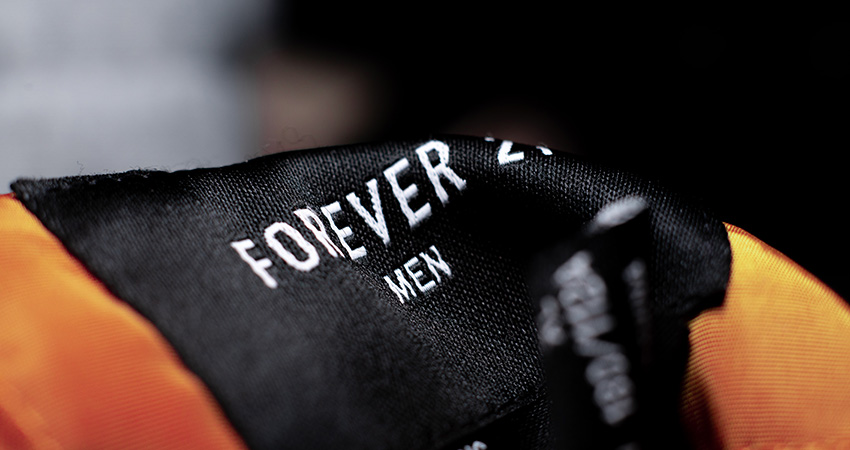Shein and Forever 21 will get a piece of each other, but not equal ones (credit: Marcus Urbenz on Unsplash)
Fast fashion retailers Shein and Forever 21 are linking up in a major partnership aimed at cross-promoting brands to a similar target audience of younger apparel shoppers heading into a closely-watched holiday season, albeit a deal with a shadow cast by concerns over Shein’s alleged business practices.
The deal calls for Chinese juggernaut Shein to acquire a one-third interest in Sparc Group, a joint venture between Forever 21 parent Authentic Brands Group and major mall owner Simon Property Group. Going the other way, Sparc will become a minority holder in Shein.
Eventually, the partners hope to have 1,000 Shein stores in Simon malls across the country. The company has 200 malls in North America, Europe and Asia, with about half in the U.S.
The split of the deal speaks to the relative power of the Chinese partner, valued at $100 billion, vs. Sparc, which raised $2 billion earlier this year but dropped its valuation by one-third to $66 billion. It’s a marriage of mall, retail and brand experience with a production and distribution machine driven by technology and social media savvy.
“We are excited for the partnership with Shein as it reflects our shared vision of providing customers with unparalleled access to fashion at affordable prices,” said Marc Miller, CEO of Sparc Group, in a release. “By working together, we will provide even more innovative and trendsetting products to fashion enthusiasts around the world.”
“Shein is thrilled to have Sparc Group as a partner and minority shareholder and we look forward to finding new ways to delight our customers through the potential of this partnership,” said Donald Tang, Shein’s Executive Chairman.
During a Friday interview with CNBC’s “Squawk on the Street that included the heads of Sparc, Shein and Simon Property Group, the latter’s CEO David Simon said one major piece of the plan is to eventually have 1,000 Shein stores in his malls.
“Shein loves shop-in-shops, loves having the ability to talk to their consumer in the physical world,” Simon said.
Sparc produces and distributes goods for seven of Authentic Brands units, including Aéropostale, Nautica, Lucky Brand, Brooks Brothers, Eddie Bauer and Reebok in addition to Forever 21.
Shein actually falls in the ultra-fast fashion camp, churning out inexpensive apparel items in small runs at the speed of a TikTok influencer trend. Its main rival is Temu, also of China, with the two locked in a legal battle, each suing the other over claims of IP theft.
This means that Forever 21’s apparel brands will be available to Shein’s vast global ecommerce audience of 150 million consumers. The deal will provide an immediate boost to Forever 21, a primarily mall-based company that filed for Chapter 11 bankruptcy protection three years ago before being acquired by Sparc for $81 million.
Forever 21, founded by Korean immigrants in Los Angeles in 1984, pretty much invented the concept of fast fashion. The retailer’s implosion from a peak of $4.4 billion in 2015 sales to a court filing became, as did many before it, a Wharton case study.
Shein products will be available for purchase and return in Forever 21’s 540 locations globally. The U.S. has become a hot battleground for the two Chinese apparel giants, both intensely desirous of the lucrative consumer market here.
Deb Gabor, president and CEO of brand consultancy Sol Marketing, said while the deal looks like a good move for Sparc on the surface, it could expose Forever 21 and its parent to the literal toxicity associated with fast fashion and Shein in particular. She referenced charges of Shein using forced Uyghur labor, chemicals in its products and improper use of customer data, a perception it’s trying to remedy with Washington lobbyists and a relocation to Singapore. A 2021 law prohibits the sale of goods in the U.S. that are produced using forced labor.
“The brands seem very aligned with their ideal customers, largely GenZ shoppers who enjoy affordable fast fashion,” Gabor said. “Business leaders should evaluate not only the numbers associated with customer and transaction growth but also the potential impact of brand association on brand equity, and the relationships existing customers have with the brands being combined.”
Shein chairman Tang address concerns about its supply chain and sourcing during a Friday interview on CNBC’s “Squawk Box,” saying the company has effective controls in place. This includes making subcontractors sign a code of conduct, conducting random audits of suppliers, using technology that traces the origin of materials and testing of all materials that enter the U.S.
“There are a lot of those speculations out there, but we believe that the U.S. is an open market, and some of those issues will be addressed by people who are much above my pay grade,” Tang said. “But we want to be a global corporate citizen doing business responsibly.”

